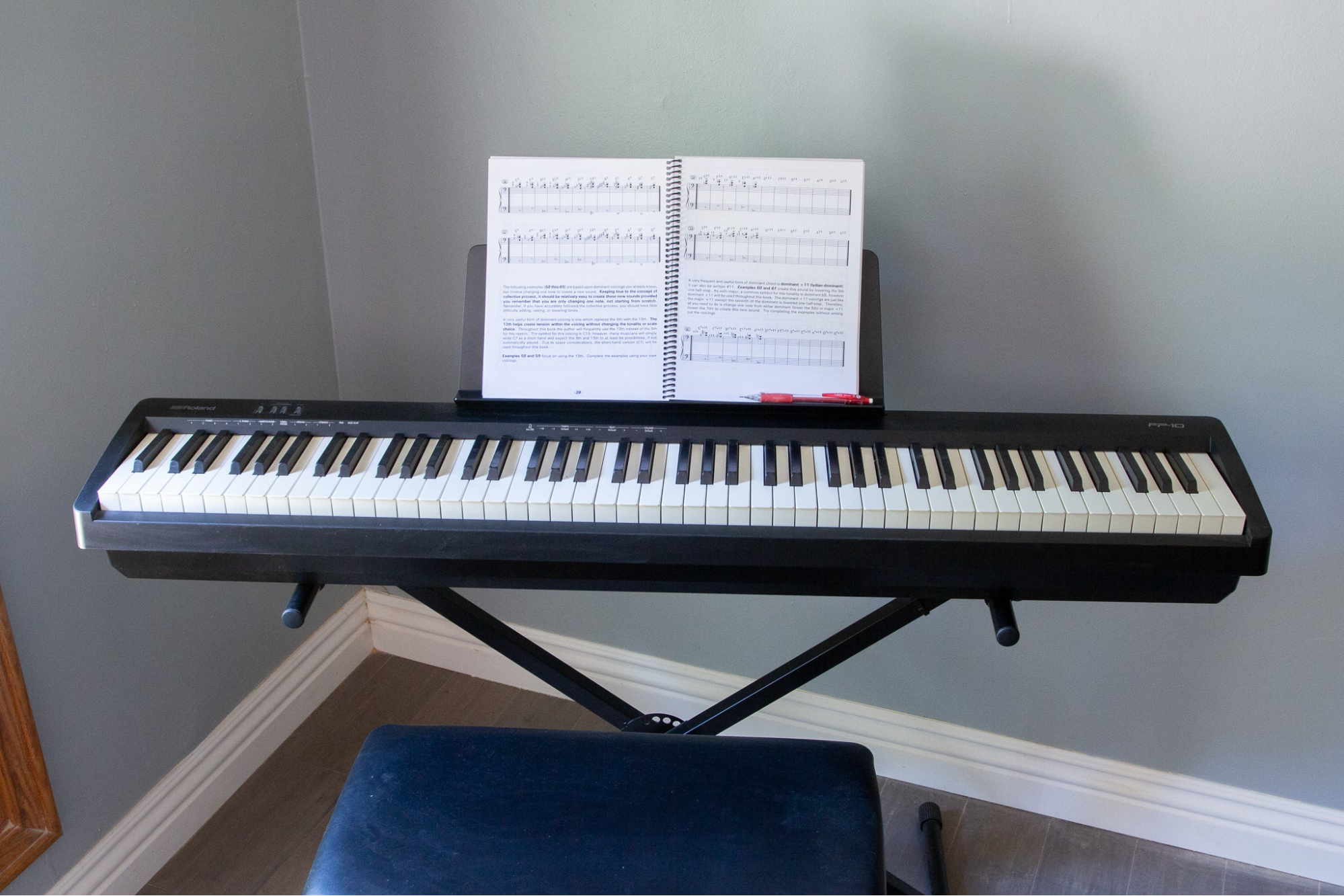
Modern music production demands flexibility, portability, and connectivity. Keyboards with Bluetooth MIDI combine traditional piano functionality with wireless MIDI capability, letting you control software, apps, and devices seamlessly.
In this guide, we’ll explore the best music keyboards, key features to consider, setup tips, and care recommendations. You’ll also learn why models like the Smart Keyboard are perfect for both beginners and experienced producers seeking wireless MIDI convenience.
Whether you’re producing beats, composing songs, or practicing at home, Bluetooth MIDI keyboards streamline workflow while maintaining the feel of a traditional piano keyboard.
Bluetooth MIDI keyboards eliminate cables while maintaining professional control over:
Wireless connectivity enhances mobility, allowing you to produce music anywhere without being tethered to your computer.

When selecting keyboards with Bluetooth MIDI, consider these features:

The Smart Keyboard is a modular digital piano designed to make learning and playing music intuitive and engaging. With its LED-guided keys, AI-powered lessons, and seamless integration with the PopuMusic app, it caters to beginners and aspiring musicians alike.
The PopuPiano app offers a gamified learning experience with over 60 trending songs, interactive lessons, and real-time feedback. Whether you're a child discovering melody or an adult reigniting your passion, PopuPiano adapts to your rhythm, making learning simple, engaging, and accessible.

The Akai LPK25 Wireless stands out as a compact and reliable Bluetooth MIDI keyboard, ideal for musicians seeking portability without compromising on functionality.
Pros and Cons:
|
Pros |
Cons |
|
Compact and lightweight design |
Limited to 25 keys |
|
Reliable Bluetooth connectivity |
Lacks velocity-sensitive keys |
|
Powered by 3 AA batteries for portability |
No onboard display |
Key Specifications:
Ideal For: Traveling musicians and producers needing a portable solution.

The Akai MPK Mini IV is a versatile MIDI controller that combines portability with advanced features, making it suitable for both studio and live performances.
Pros and Cons:
|
Pros |
Cons |
|
Includes pitch and modulation wheels |
Slightly larger than other mini controllers |
|
Full-color display for enhanced feedback |
May require USB-C adapter for some devices |
|
Bundled with Ableton Live Lite 12 |
Higher price point compared to basic models |
Key Specifications:
Ideal For: Producers seeking a feature-rich, portable MIDI controller.

The Novation Launchkey 37 Mk3 is a robust MIDI keyboard designed for music production, offering seamless integration with major DAWs and a range of expressive controls.
Pros and Cons:
|
Pros |
Cons |
|
Semi-weighted keys for expressive play |
Larger size may reduce portability |
|
Deep integration with Ableton Live |
Higher price point |
|
Includes arpeggiator and chord modes |
Lacks Bluetooth connectivity |
Key Specifications:
Ideal For: Producers and performers seeking a versatile MIDI keyboard with comprehensive DAW integration.

The M-Audio Keystation 49 MK3 is a full-size MIDI keyboard that offers essential features for musicians and producers, focusing on simplicity and functionality.
Pros and Cons:
|
Pros |
Cons |
|
Full-size 49 keys for comfortable play |
No velocity-sensitive keys |
|
USB-powered for easy setup |
Lacks advanced controls |
|
Affordable price point |
No Bluetooth connectivity |
Key Specifications:
Ideal For: Musicians seeking a straightforward, budget-friendly MIDI keyboard.
Ask yourself:
Proper setup ensures smooth operation:
Even wireless keyboards benefit from proper setup:
Accessories for Bluetooth MIDI Keyboards
The PopuPiano Smart Keyboard, Akai MPK Mini MK3, and Roland GO:KEYS 61 are top options for wireless MIDI use.
Yes, most modern keyboards support both platforms for apps, DAWs, and educational software.
Absolutely. They work with DAWs like Ableton Live, Logic Pro, and FL Studio for composition and recording.
25–37 keys are ideal for portability, while 61–88 keys provide full-range piano experience.
Yes. Many models, including the PopuPiano Smart Keyboard, support interactive lessons and piano games.
Keyboards with Bluetooth MIDI provide freedom, portability, and modern connectivity for musicians, producers, and students. The PopuPiano Smart Keyboard is an excellent example of a lightweight, beginner-friendly option that integrates Bluetooth MIDI, interactive lessons, and foldable portability.
Explore wireless MIDI keyboards today to unlock mobile music production and interactive learning anywhere.
Read more

Ultra‑Light Keyboards Under 10 lbs (Backpack‑Ready)
Finding a lightweight keyboard piano that combines portability, playability, and sound quality can transform practice and performance. For musicians on the go, a lightweight piano keyboard or piano...

Best Keyboards with Headphone Jack for Silent Practice
Playing piano in shared spaces or apartments can be tricky without disturbing others. A keyboard piano with headphone jack lets you enjoy practice sessions quietly while still getting a realistic p...